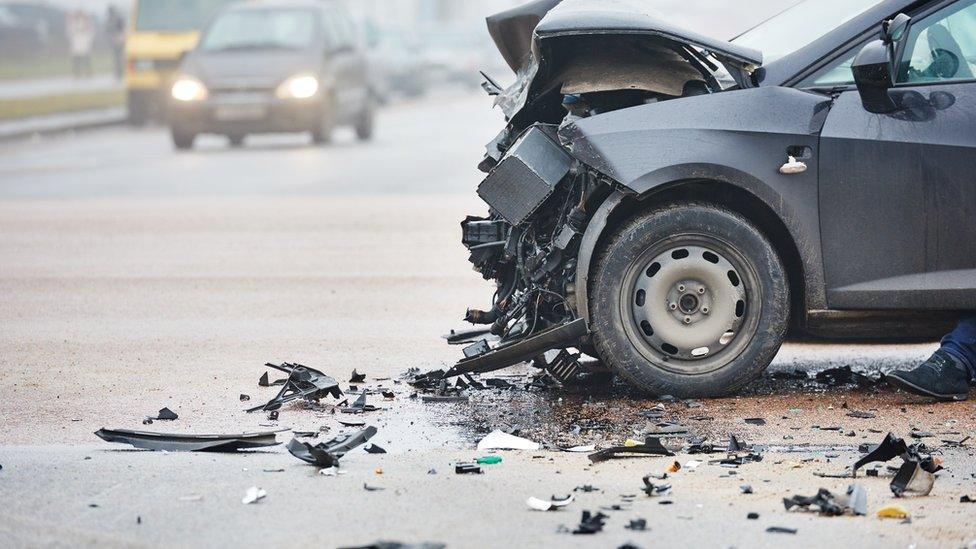Special police investigation team 'could cut crashes'
- Published
Katie Jenkins's mum was riding pillion on a motorbike with her husband when it was hit by a car
More calls have been made to create an independent police investigations branch in a bid to cut fatal crashes.
Newport East MP Jessica Morden said a UK-wide body could spot trends and learn broader lessons from work carried out by crash scene investigators.
In Wales in 2017 there were more than 500 incidents police attended involving 107 fatalities.
Road safety charity Brake, external and the RAC foundation, external have also previously called for an accident investigation branch.
"At the moment each individual force have got their road collision branches and they do brilliant work - they want to find out the cause of the collision and make sure it doesn't want to happen to anyone else," said Ms Morden, who became aware of the campaign through a family from her constituency who lost their daughter in 2017.
"On a UK level what you haven't got is one independent body which would support those investigators, not overtake them, and draw out some of the trends so we can stop this happening again.
"We do have bodies for rail, maritime and aviation investigation branches which look at those particular accidents, but there's nothing for roads.
"It's about looking at the most effective counter measures to stop those numbers of people dying on our roads.
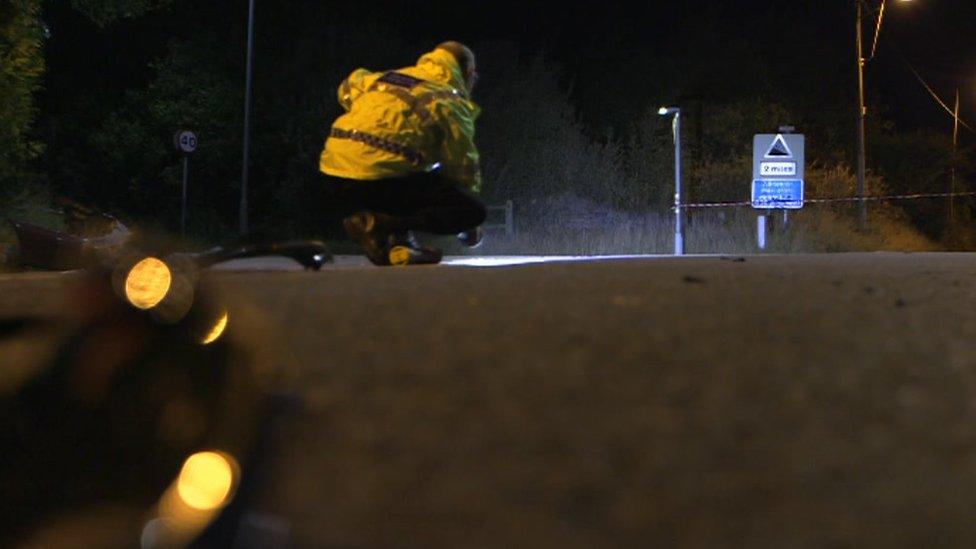
"It just makes sense that you pull together all the information you've got... and draw out lessons."
Fatal accidents have fallen over the past decade, external across the UK.
However, figures obtained by BBC Wales suggest forces were still called to more than 500 serious incidents which were life-changing or fatal in 2017. In Wales, there were 107 fatalities.
Katie Jenkins, from Abersychan, Torfaen, lost her mother in a crash in September 2016 after a driver pulled out of a forecourt without looking, and also wants to see an independent police branch.
"More people need to know about the seriousness of deaths on the road, because what we've been through, as a family, is horrendous, and we don't want that to happen to any other family," said the 31-year-old.
"If we can get that out there then hopefully we can prevent it from happening again.
"It's happening so frequently, and it seems to get swept to the side. It needs a higher profile, because driving is an everyday thing. There are thousands of people getting in cars every day."
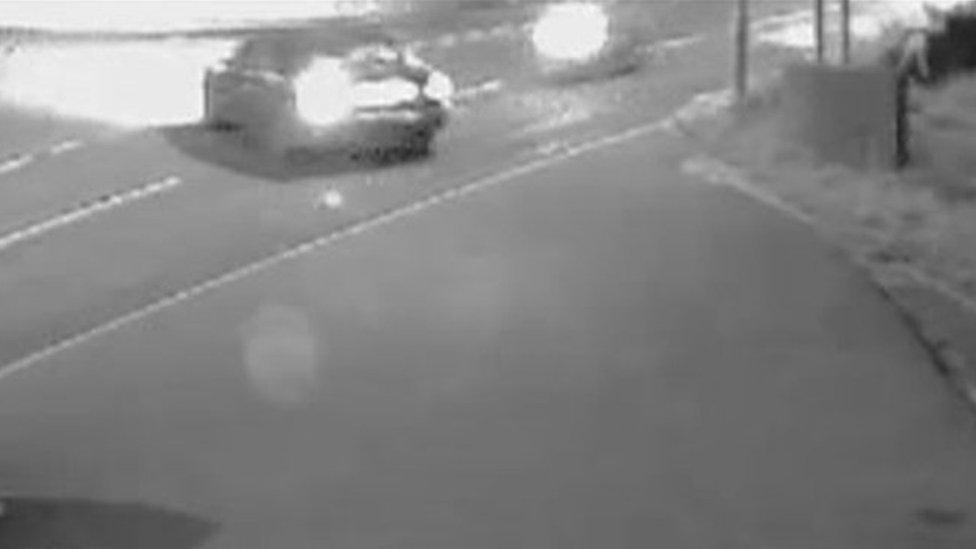
CCTV footage captured the crash which killed Katie Jenkins' mother Ray Jones
The crash - and subsequent investigation which led to a prosecution - was filmed as part of a new BBC Wales TV documentary, which followed the work of Gwent Police's forensic collision investigation unit over two years.
Sgt Bob Witherall said: "I think there's a general misunderstanding that we just turn up, grab the brushes and start sweeping up, and that isn't the case.
"We'll be at scenes and people will see us on our hands and knees with our eyes to the floor looking for the most minute of details, and that's why it takes so long, and that's how meticulous we have to be.
"You never know what is around the corner in terms of the investigation, so we gather absolutely every last detail.
"Any death on the roads is too high. When you get in the car in the morning it's remembering you are potentially driving a killing machine - you have to keep that in your mind and remain focused on your journey."
The Department for Transport said it had nothing to add to comments made in Parliament last month by Transport Minister Jesse Norman who said the possibility of setting up a national body was being looked at "closely".
The Crash Detectives starts on BBC One Wales, Monday at 20:30 BST
- Published8 April 2018
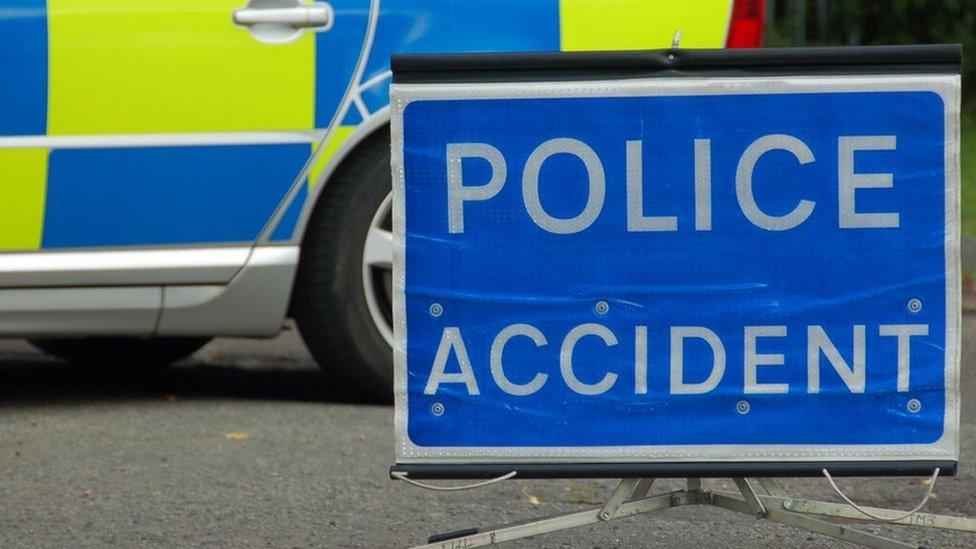
- Published9 April 2017
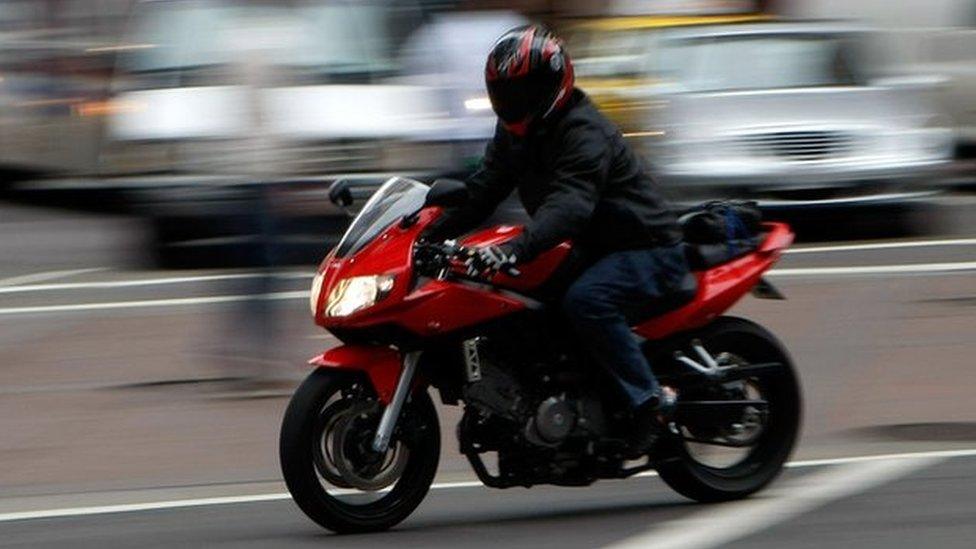
- Published4 July 2017
